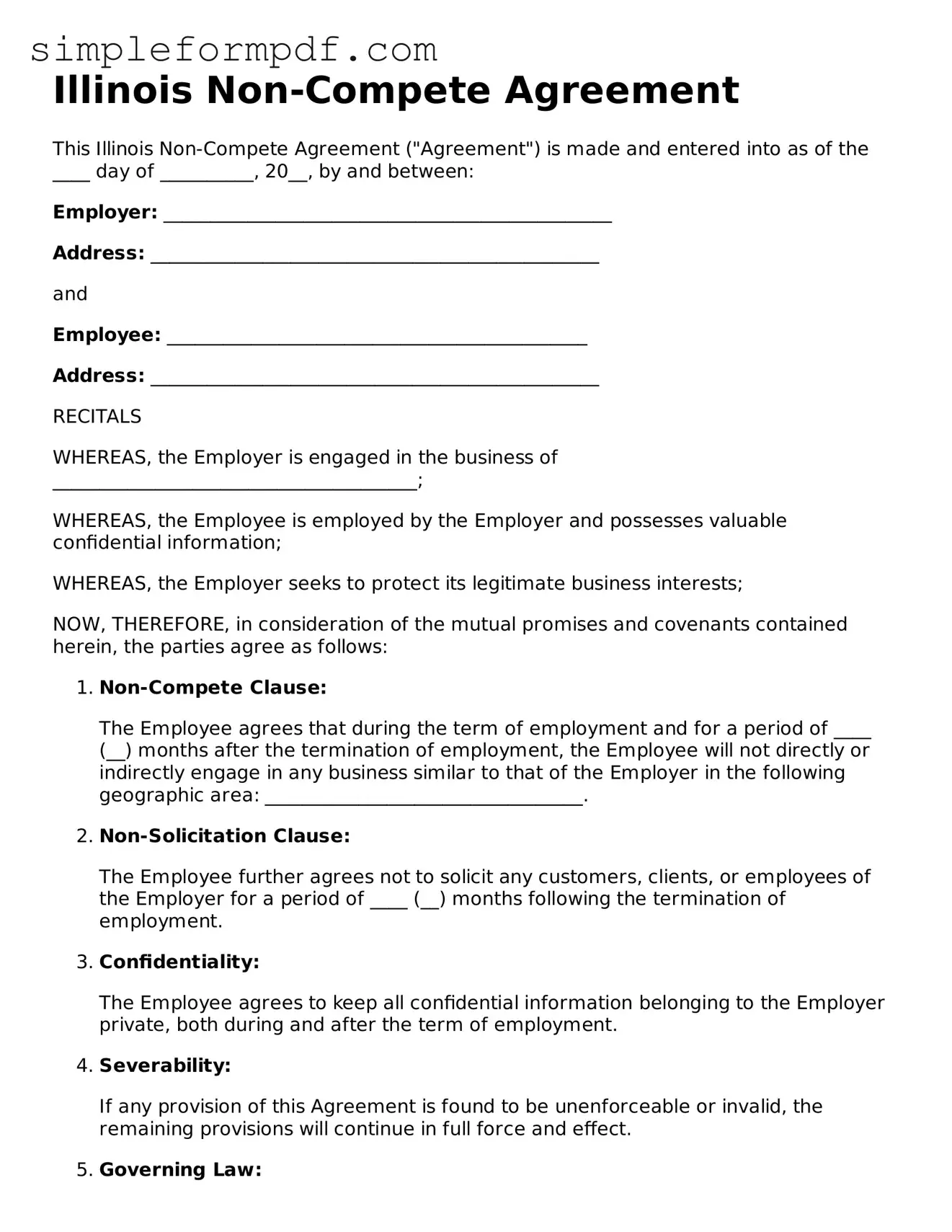Free Non-compete Agreement Form for the State of Illinois
A non-compete agreement is a legal contract that restricts an individual's ability to work for competing businesses after leaving a job. In Illinois, these agreements are subject to specific regulations that aim to balance the interests of employers and employees. Understanding the nuances of the Illinois non-compete agreement form is crucial for both parties to ensure compliance and protect their rights.
Ready to take the next step? Fill out the form by clicking the button below.
Launch Editor

Free Non-compete Agreement Form for the State of Illinois
Launch Editor
Need instant form completion?
Finish Non-compete Agreement online in just a few minutes.
Launch Editor
or
Download PDF
